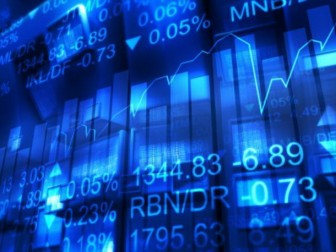 By Alex Richardson
By Alex Richardson
SINGAPORE (Reuters) – Asian shares clambered to a 16-month high on Monday as investors took heart from economic data from China and the United States that raised hopes about the outlook for growth in the world’s top two economies.
The euro was under pressure, having been knocked by the prospect of a recession in Germany and political uncertainty in Italy after Prime Minister Mario Monti, an investors’ favourite, said at the weekend he intended to resign early.
MSCI’s broadest index of Asia Pacific shares outside Japan and Tokyo’s Nikkei share average both gained 0.3 percent.
The MSCI index rose more than 1 percent last week, its third successive weekly gain, taking it to levels not seen since early August 2011, and there was a further boost for regional markets on Sunday when China reported a pick-up in factory output and retail sales growth to eight-month highs.
“We had some really good economic data coming out from China,” said Juliana Roadley, market analyst at Commonwealth Securities. “Over the last few years, you had the Chinese government pulling back on growth and trying to control things so that it didn’t over-boil. Now it looks like all that good work has been done.”
Hopes that China’s economy is revving up again after seven straight quarters of slowing growth also boosted riskier assets such as oil and copper.
Asian “risk” markets took in their stride China trade data on Monday that showed both imports and exports below forecasts.
“The export slowdown shows external demand faces uncertainty due to concerns over the fiscal cliff in the US,” Zhang Zhiwei, chief China economist at Nomura in Hong Kong, said. “Nonetheless it does not change our view that growth is on track for a strong recovery in Q4, as (growth) is mostly domestically driven.”
On Wall Street, the Dow and S&P 500 had risen modestly on Friday after an unexpected fall in the U.S. unemployment rate. S&P 500 futures were up 0.1 percent on Monday.
MARKETS WATCH ITALY
The euro slid in early trading towards a two-week low of $1.2876 plumbed on Friday, before popping back above $1.29. Investors had sold the euro after Germany’s central bank on Friday warned that the euro zone’s biggest economy could soon enter recession.
Italian Prime Minister Monti’s surprise announcement at the weekend came a few days after former Prime Minister Silvio Berlusconi abruptly withdrew support for Monti’s technocrat government, formed over a year ago in an effort to restore Italy’s credibility with investors.
“If Monti’s pro-euro stance is to back off, that should raise concerns about the euro,” said Junya Tanase, chief currency strategist at JPMorgan Chase in Tokyo.
Italian bond yields will be closely watched on Monday. The 10-year yield, the main barometer of investor confidence, stood at 4.5 percent at the end of last week, 323 basis points higher than the yield on the lower risk German equivalent but well below the 7.3 percent peak hit last year, when the spread over German Bunds hit 550 points.
The U.S. dollar rose about 0.3 percent against a basket of major currencies.
Commodity markets were also generally firmer, with copper, which draws strength from expectations of Chinese industrial demand, rising 0.2 percent to around $8,050 a tonne and oil rising around 0.3 percent.
Brent crude trade around $107.40 a barrel and U.S. crude fetched about $86.20.
“Investors are slightly more optimistic about China’s economic recovery than before and that is supportive for oil,” said Ken Hasegawa, a commodity sales manager at Newedge Japan.
The easy outlook for monetary policy continued to support gold, with the U.S. Federal Reserve expected to signal this week it will continue to pump money into the economy in 2013. Also, there was talk of a possible rate cut next year by the European Central Bank.
Spot gold firmed 0.1 percent to around $1,705 an ounce.
(Additional reporting by Thuy Ong in Sydney and Manash Goswami in Singapore; Editing by Richard Borsuk)
Source: Reuters






![[Geojit Comtrade] Daily report on Natural Rubber: December 10, 2012](https://img.globalrubbermarkets.com/2024/08/geojit-comtrade-daily-report-on-natural-rubber-december-10-2012.jpg?resize=75%2C75&ssl=1)





















